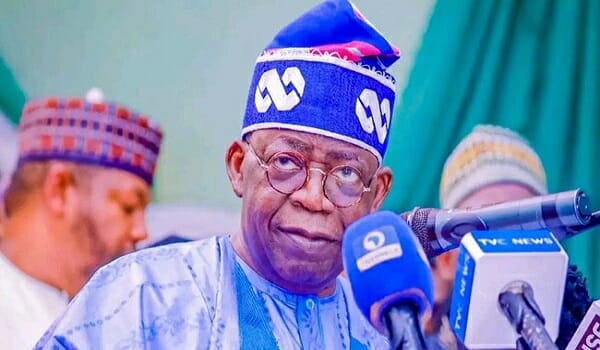The coiner of the cliché “when it rains, it pours” must have had Nigeria’s president-elect, Bola Tinubu, in mind when (s)he coined the expression.
Since his declaration as the winner of the highly controversial February 25 presidential election, Tinubu, the presidential candidate of the All Progressives Congress (APC), has been enmeshed in one career-shattering controversy or the other.
From questionable identity to perjury and indictment in drug trafficking in the United States, the litany of scandals that the former Lagos state governor is embroiled in increases as the digging into his past life intensifies.
Again, the president-elect is in the eye of the storm as allegations of holding dual citizenship surface.
A picture of the bio-page of a Guinea Conakry passport belonging to Mr. Tinubu has surfaced online after popular influencer David Hundeyin shared a copy on his Twitter handle.
This revelation could have grave consequences for his political career, as dual citizenship disqualifies a Nigerian from the office of president, which Bola Tinubu contested and was declared the winner of the February 25, 2023 election by the Independent National Electoral Commission (INEC).
A Source, who is familiar with the development, said the Guinea Conakry passport was discovered during a routine investigation into the financial assets of Nigerian politicians.
The source claims to have verified the passport’s authenticity, raising questions about Tinubu’s eligibility to hold public office in Nigeria.
Legal experts weigh in on the potential consequences of the revelation should it be proven true.
The Nigerian Constitution, Chapter 6, Part 1, Section 137 states,
1. A person shall not be qualified for election to the office of the president if -(a) subject to the provisions of section 28 of this Constitution, he has voluntarily acquired the citizenship of a country other than Nigeria or, except in such cases as may be prescribed by the National Assembly, he has made a declaration of allegiance to such other country.
This revelation also raises another legal conundrum for Tinubu. He could be accused of perjury as the forms he submitted to INEC under oath show that he did not declare any foreign citizenship on the form.
It, however, remains to be seen how the latest discovery will impact the outcome of the tribunal’s ruling on the petition filed by the political parties and presidential candidates challenging the outcome of the February 25 poll.
The leading petitioners, Atiku Abubakar of the Peoples Democratic Party and Peter Obi of the Labour Party did not include Tinubu’s dual citizenship among their prayers and grounds on which they challenge his eligibility to contest the presidential election and eventual annulment of his victory.
